
Wellcome Open Research was launched in 2016 as a platform for the publication of a wide range of submissions from Wellcome Trust-funded researchers. The platform, based on the same model as F1000Research, works on the publish first and peer review later model. The platform uses open peer review and enables versioning of articles in response to peer review comments. In launching the platform, the Wellcome Trust stated that the benefits would include faster publication of research, improved reproducibility and reliability of research and the publication of null and negative results. The platform was seen as particularly relevant for early career researchers (ECRs) as their work would be more visible, would include studies reporting negative or null results that can be difficult to publish elsewhere and would encourage dialogue with peer reviewers over the improvement of their articles.
I spoke to Dr Al Edwards about his experiences of publishing his work on the Wellcome Open Research platform. A version of this video is also available to University of Reading staff and students via Microsoft Stream.
Introductions
I work in the School of Pharmacy at University of Reading and my research is concentrated on biomedical technology, particularly diagnostics and vaccine technology. We were working on a vaccine for coronavirus a couple of years ago.
Why choose this platform?
I’ve published there twice for slightly different reasons. The first time was related to the Covid19 pandemic. We published a methodology paper for testing things during a pandemic and this paper was built on work we’d done with Wellcome Trust funding. This made us eligible to publish on the platform. Pandemic aside, our second publication was also from work funded by the Trust and was something that we thought we might struggle to publish elsewhere. The paper was a systematic analysis of lots of different cameras that we thought might be useful for everyone .
How does the platform work?

It is a very logical way to publish but is a bit unconventional. The idea is combining a preprint archive with the final approved version and all the peer reviews and data behind the article. You write your article as usual; you have to include all your data in the submission. The paper is checked. Most of the checks are about accessibility and transparency. If you’ve said your data is available elsewhere, they will go and check. It does take a week or so to complete these checks. The article is then published and is made freely available. It then goes through an open peer review process whereby the reviews are visible with the article. If there’s a recommendation for any changes, you can then submit a new version that will then be re-reviewed. Once approved by two reviewers, the article is then considered to be indexed. The authors’ comments to the reviewers are also open so that the reader can see the dialogue that took place between the peer reviewers and the author. In theory it is a great idea.

Are the reviewers still invited to review?
There are author-suggested reviewers and those suggested by the platform based on keywords in the article. You can ask for certain reviewers not to be invited. The platform then sends out invitations to the selected reviewers. Most people just don’t have time to review – it is the same as with any other conventional journal.
Were you worried about the peer reviews being open?
My biggest concern about open peer review is that if I wrote one, I’d be much more careful if I knew it was going to be published. I think open peer review is harder because you are essentially writing something for publication. This means that it can be even harder to recruit reviewers. Until the culture changes, this might be a real barrier. I’m more worried about finding willing reviewers rather than what they might say about my work. I can always explain why a public comment on my work might be wrong or unreasonable and a fair and open debate can take place. If the review is private, it is harder to enter into a discussion with the reviewer.
What about the pace of peer review?
We’ve published a couple of papers. The first was in the summer of 2020. It took a long time but eventually we got couple of reviews. It was slower than most conventional journals. But it has the bonus that the research is already out there even while you are waiting for reviews. Nobody’s going to blame you for the delay because they can see that there are obviously difficulties in recruiting reviewers. For the second paper, because of the time I published it in March this year, I wouldn’t necessarily expect any reviews yet. I believe that authors have to suggest more reviewers once the initial list has been exhausted. I haven’t had the time to go back onto the platform and suggest some additional reviewers. Normally that would be the journal editors job and they have time pressures on them to keep the times between submission and acceptance as short as possible.
Did you have to provide the underlying data to accompany your article?
It is a very strong rule on the platform that everything should be shared if it can be and if the raw data is meaningful. We are lucky that we have very good support available at the University of Reading. For the first article, we used the University Research Data Archive. It was very easy to set up as we had so much guidance on how to do it. What that meant that was all the checks that the platform requires had already been done on our dataset. When we submitted, as everything was correct, it was very straightforward. You can use other places to archive your data. If you use a repository or archive recommended by the publisher, it will already have a lot of the features required in place such as correct labelling and having a DOI. It is a reasonably straight-forward process if you have any kind of data that can be shared and/or reused.
Have you updated your article in response to feedback or peer reviews?
We haven’t done the updates yet for the one that has peer reviews added to it. This is mainly due to the pressure of having lots of other articles currently under review that need looking at. The cool thing would be if we can publish the real research based on the methodology that we described in the original paper. We could argue that having published the method, we were then able to go out and use that method to develop benefits to society and work on solving a real problem. Things are rapidly changing due to Covid. If the research doesn’t come to anything, it won’t be because of where we published the article. Some things just don’t work out the way you’d hoped.
Do you have to pay to publish on this platform?
Anyone who has had Wellcome funding can use the platform to publish their research free of charge. That was a good reason for us to use the platform.
Do you have any advice for others thinking of publishing on this or similar platforms?
My basic advice is give it a go. It is quite interesting to look at the articles on the platform. A lot of the articles are different to ones that you might find in conventional journals. Lots of them are prospective planning or methodology articles or might be wider and more sweeping articles that can be difficult to submit to conventional journals perhaps because they are too long. Have a go but be patient. Assume that it might be slow to get reviews – but that can be true of conventional journals too.
The articles by Al Edwards are openly available on the Wellcome Open Research website:
Jégouic SM, Jones IM and Edwards AD. Affordable mobile microfluidic diagnostics: minimum requirements for smartphones and digital imaging for colorimetric and fluorometric anti-dengue and anti-SARS-CoV-2 antibody detection [version 1; peer review: awaiting peer review]. Wellcome Open Res 2021, 6:57 (https://doi.org/10.12688/wellcomeopenres.16628.1)

Dataset: http://dx.doi.org/10.17864/1947.262
Jegouic, Sophie and Edwards, Al (2020): Dataset associated with the article ‘Affordable mobile microfluidic diagnostics: minimum requirements for smartphone digital imaging for colorimetric and fluorometric viral antibody detection’. University of Reading. Dataset. http://dx.doi.org/10.17864/1947.262
Needs SH, Bull SP, Bravo J et al. Remote videolink observation of model home sampling and home testing devices to simplify usability studies for point-of-care diagnostics [version 1; peer review: 4 approved with reservations]. Wellcome Open Res 2020, 5:174 (https://doi.org/10.12688/wellcomeopenres.16105.1)


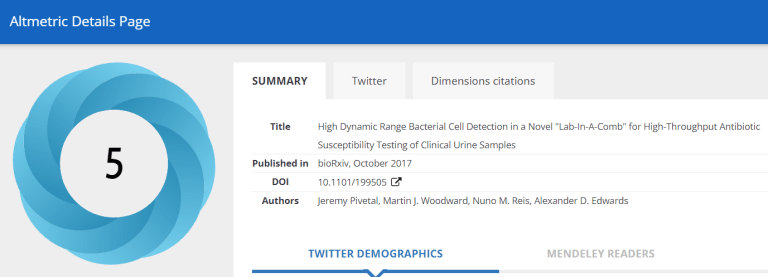
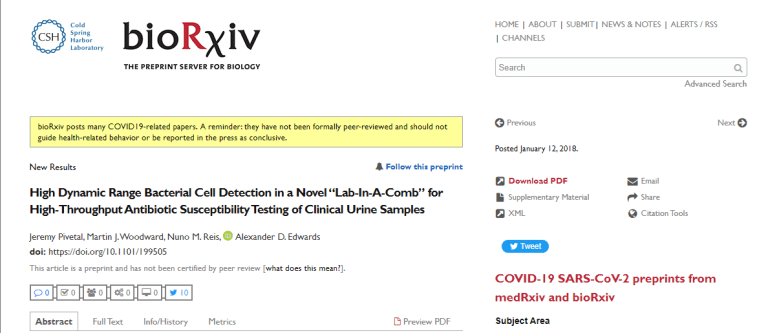
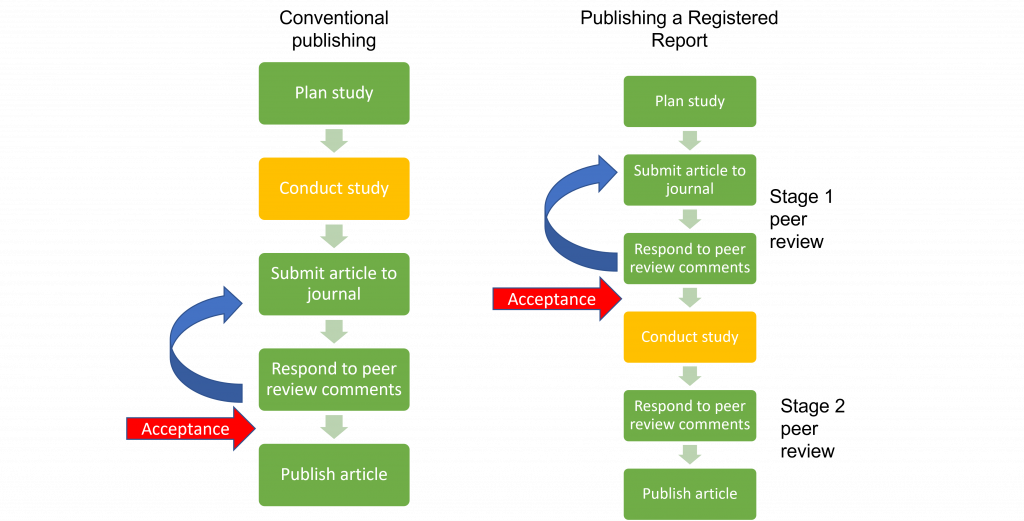






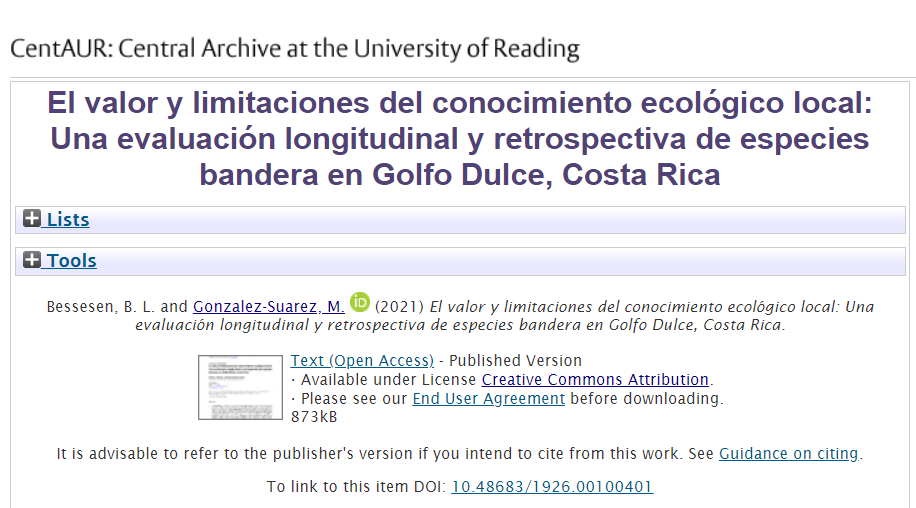




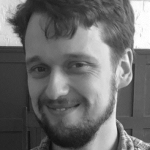

 Dr David Brayshaw
Dr David Brayshaw
 Dr Alanna Skuse
Dr Alanna Skuse
 This post is by Open Research Champion
This post is by Open Research Champion  RSS - Posts
RSS - Posts